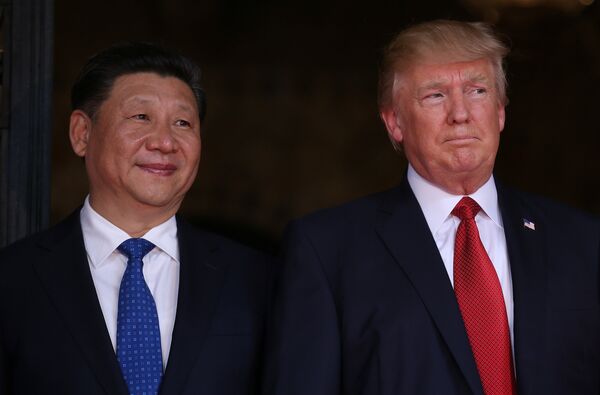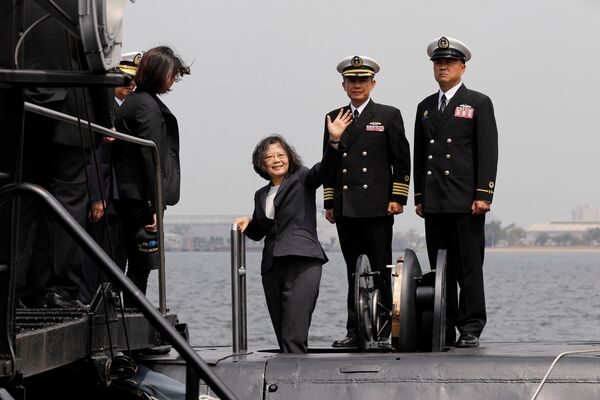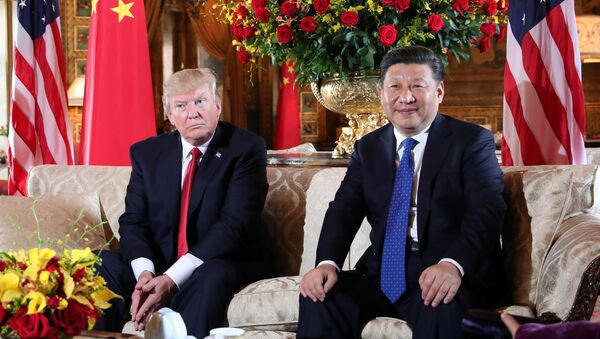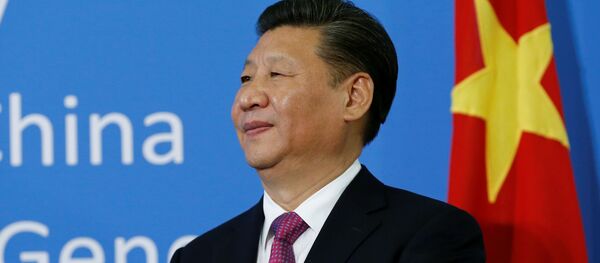One of his first foreign policy controversies happened in early December 2016, when, as President-elect, he took a phone call with President of Taiwan Tsai Ing-wen.
Those ten short minutes caused a diplomatic firestorm.
China reacted furiously to the news that diplomatic channels between Washington and Taipei, which had been cut off since 1979, had been opened.
The President of Taiwan CALLED ME today to wish me congratulations on winning the Presidency. Thank you!
— Donald J. Trump (@realDonaldTrump) December 3, 2016
Interesting how the U.S. sells Taiwan billions of dollars of military equipment but I should not accept a congratulatory call.
— Donald J. Trump (@realDonaldTrump) December 3, 2016
A spokesman for the National Security Council, Ned Price, hastily issued a statement trying to reassure Beijing, insisting:
"There is no change to our longstanding policy on cross-Strait issues" and that the US remains "firmly committed to our 'one China' policy."
Nearly five months on Trump seems keen to not repeat the same furore. And so in response to President Tsai's recent suggestion on Thursday April 27, of another phone call between the US and Taiwan, Trump stonewalled.
Speaking to Reuters, President Trump said that ongoing attempts by the US and China to curb North Korean military activity was more of a priority for his administration.
"Look, my problem is I have established a very good personal relationship with President Xi [China's President]. I really feel that he is doing everything in his power to help us with a big situation," Trump told Reuters, referring to North Korea."

"So I wouldn't want to be causing difficulty right now for him."
"I think he's doing an amazing job as a leader and I wouldn't want to do anything that comes in the way of that. So I would certainly want to speak to him first," Trump added.
Trump's remarks deal a blow to Taiwan's bid for more global recognition. Most countries, and the UN, still do not recognize Taiwan as a sovereign nation.
However, while President Trump may avert a repeat backlash from Beijing, domestically, some US commentators have reacted negatively to Trump's promise to consult with Chinese President Xi Jinping before speaking to Taiwan again.
Since her December 2 phone call with President Trump, Taiwanese President Tsai Ing-wen has alleged that China has employed bulling tactics to try and manipulate Taiwan into backing away from the US.

Speaking in January 2017, Tsai said:
"Step by step, Beijing is going back to the old path of dividing, coercing, and even threatening and intimidating Taiwan."
However, for the US and its allies, the country of greatest concern in the Asia-Pacific region continues to be North Korea.




